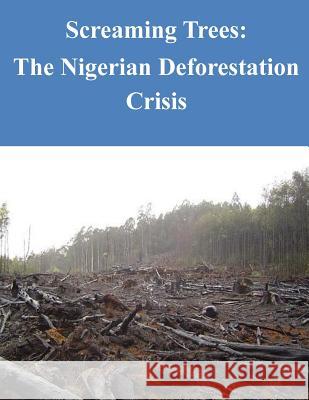Screaming Trees: The Nigerian Deforestation Crisis » książka
Screaming Trees: The Nigerian Deforestation Crisis
ISBN-13: 9781500549626 / Angielski / Miękka / 2014 / 28 str.
Nigeria has the highest rate of deforestation in the world and the Government of Nigeria (GON) has failed to implement an effective response to this worsening crisis. Deforestation degrades land quality and agricultural output, resulting in forced migration and increased competition for scarce resources. This erodes government legitimacy and, ultimately, leads to conflict that results in more deforestation. The GON and international community must act to break this cycle and reverse deforestation to prevent widening conflict and irreversible environmental degradation. This paper begins with an analysis of the linkage between deforestation and conflict, followed by an overview of the underlying environmental and socio-economic conditions that enable deforestation. Next is an explanation of the relationship between deforestation, climate change, and Nigerian quality of life. Building on this foundation, the analysis shifts to Nigerian efforts to address the deforestation crisis, with a specific focus on corruption and poor governance. Finally, this paper concludes with recommendations for Nigeria and the international community to reverse deforestation through a holistic, integrated campaign that is focused on economics, education, governance, and innovation.
Zawartość książki może nie spełniać oczekiwań – reklamacje nie obejmują treści, która mogła nie być redakcyjnie ani merytorycznie opracowana.











